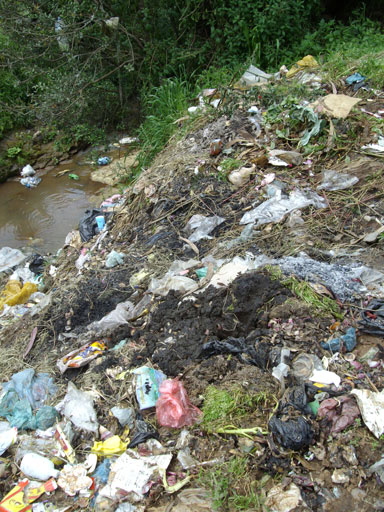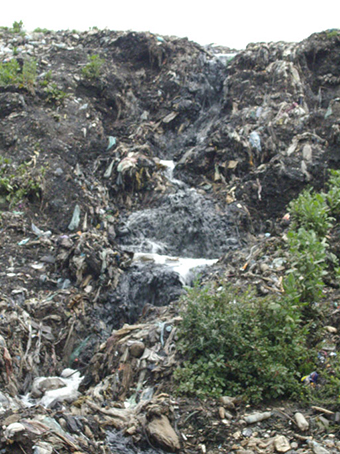3.2.3 Solid waste management services
Solid waste management services are another key service area in the WASH sector. Efficient solid waste management is critical for the well-being of urban communities. Without this service, solid waste can accumulate and quickly become a health risk. Figure 1.4 of Study Session 1 shows such a situation.
Solid waste management systems include collection, transport and final disposal systems. With the 3 R approach in mind, waste management may also include separating waste into its different components (glass, metal, plastic, paper, etc.) so that some of the waste can be reused or recycled. Infrastructure and equipment for solid waste management is usually paid for by the government and is therefore a public service. However, there are initiatives in most towns to engage private operators in one or more components of the waste management system.
The solid waste service is usually a low priority service, particularly in small and emerging towns. The general trend is that solid waste management does not become a critical concern until the point where accumulated waste has already become unsightly and caused inconvenience to communities, as illustrated in Figure 3.5.

Information about access to waste management services in urban areas is not as easily available as information on other services, so less detailed data can be presented here than for water supply and sanitation services. Moreover, since service levels are not clearly defined, it is impossible to accurately and objectively determine the service coverage. However, larger towns that produce significant quantities of waste tend to have better established systems. Some towns in Ethiopia such as Addis Ababa and Bishoftu have invested in building solid waste disposal sites, but many are still not able to cope with the increasing demand (Figure 3.6).

Which of the three key WASH service areas for urban areas, would be involved in:
- a.disposing of household plastic waste
- b.providing clean piped water
- c.disposing of septic sludge?
The answers are as follows:
- a.Solid waste management services
- b.Water supply services
- c.Sanitation and sewerage services.
3.2.2 Sanitation and sewerage services
